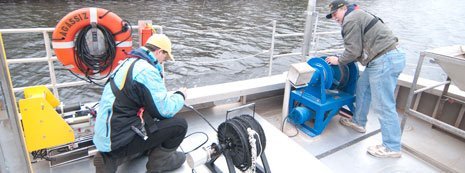Economic, social, and environmental cost optimization of biomass transportation: a regional model for transportation analysis in plant location process
Document Type
Article
Publication Date
1-4-2019
Abstract
The need to build an efficient procurement system has been recognized as one of the main obstacles to the extension of the bioenergy industry. Transportation is a key component of that system, as it accounts for a significant portion of the delivered cost. One of the most critical factors affecting transportation cost is the interrelationship between feedstock sources and facility locations, including plant and off‐plant transfer / storage facilities. At the same time, biomass energy sustainability is sensitive to the performance of each component in the entire process. The main goal of this study is to build a mixed integer linear programming (MILP) model that uses region‐specific data to minimize sustainable transportation costs. This consists of economic, environmental, and societal factors. The upstream air emissions as a result of residues collection at the forest, transloading, and transportation by truck or multimodally (truck and rail), which include greenhouse gases (GHG), particulate matter (PM), and nitrogen oxides (NOx), are calculated and included in the analysis. The model was tested on a case study that evaluated transportation costs for nine alternative plant locations in the state of Wisconsin. The results revealed that when equally weighed, external (social and environmental) costs accounted for a considerable portion of total transportation cost (approximately 26–37%). The study also shows that total upstream GHG and air emissions increased as the plant capacity increased, due to the longer transportation distances, but per unit emissions decreased.
Publication Title
Biofuels, Bioproducts and Biorefining
Recommended Citation
Ko, S.,
Lautala, P. T.,
Fan, J.,
&
Shonnard, D.
(2019).
Economic, social, and environmental cost optimization of biomass transportation: a regional model for transportation analysis in plant location process.
Biofuels, Bioproducts and Biorefining.
http://doi.org/10.1002/bbb.1967
Retrieved from: https://digitalcommons.mtu.edu/cee-fp/62


Publisher's Statement
© 2019 Society of Chemical Industry and John Wiley & Sons, Ltd. Publisher's version of record: https://doi.org/10.1002/bbb.1967